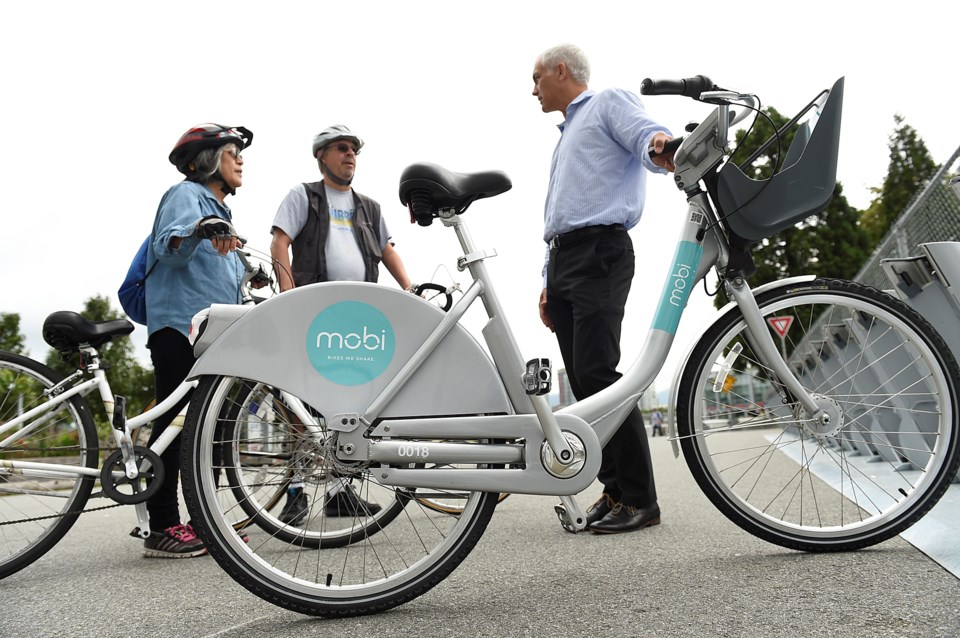Pedal power in Vancouver is poised to get a major push in the coming weeks.
The city’s long-promised bike-sharing network, dubbed Mobi, will be fully rolled out by the end of the summer and will include a network of 1,500 bike rentals offered at 150 docking stations.
About 25 stations are currently set up in locations along the seawall and other major intersections and thoroughfares: West 10th Avenue and Cambie Street, at Granville and Georgia streets and at Beatty and Dunsmuir streets.
The first phase of the network will be offered in an area bounded by Arbutus Street, West 16th Avenue and Main Street.
A specific start date, however, hasn’t been set.
“For an actual launch, one of the key things that we’re looking for is a critical number of those [stations] to be out in the field,” said Scott Edwards, the city’s manager of public bike share. “We want to make sure that it’s a functional system, and one of the key elements of that that we’ve learned from other cities is to make sure there are enough stations out in the public domain for people to be able to have easy access from the beginning and the end of their trip.”
Edwards described the model of bikes being used as “European-styled upright bikes.” Each bike will have seven speeds and a free helmet offered. About 2,600 docking points will be available to accommodate additional trips.
Riders will use a card similar to the Compass pass to unlock a bike and return it to a docking station along with the helmet. Start-up membership prices range between $99 and $129, depending on the duration of trips.
“What we’ve learned from other cities is that at least 80 per cent of trips are made by locals, so this is really a transportation option for people to be able to continue an existing trip or link to an existing trip, whether that’s walking, biking, taking transit or carpooling,” Edwards said.
“We can now re-envision how people experience the city.”
The program’s impending introduction is five years in the making. The city’s first chosen equipment provider, Montreal-based Bixi, went bankrupt, stalling initial plans in 2013. Alta, the company picked to operate the bike share system, also faced financial challenges and Vancouver ultimately re-started its procurement process.
In February, the city announced that Cyclehop will operate the system. The city is paying Cyclehop $5 million over five years to install, operate and maintain the system.
For more information, see vancouverbikeshare.ca.
— with files from Business in Vancouver



